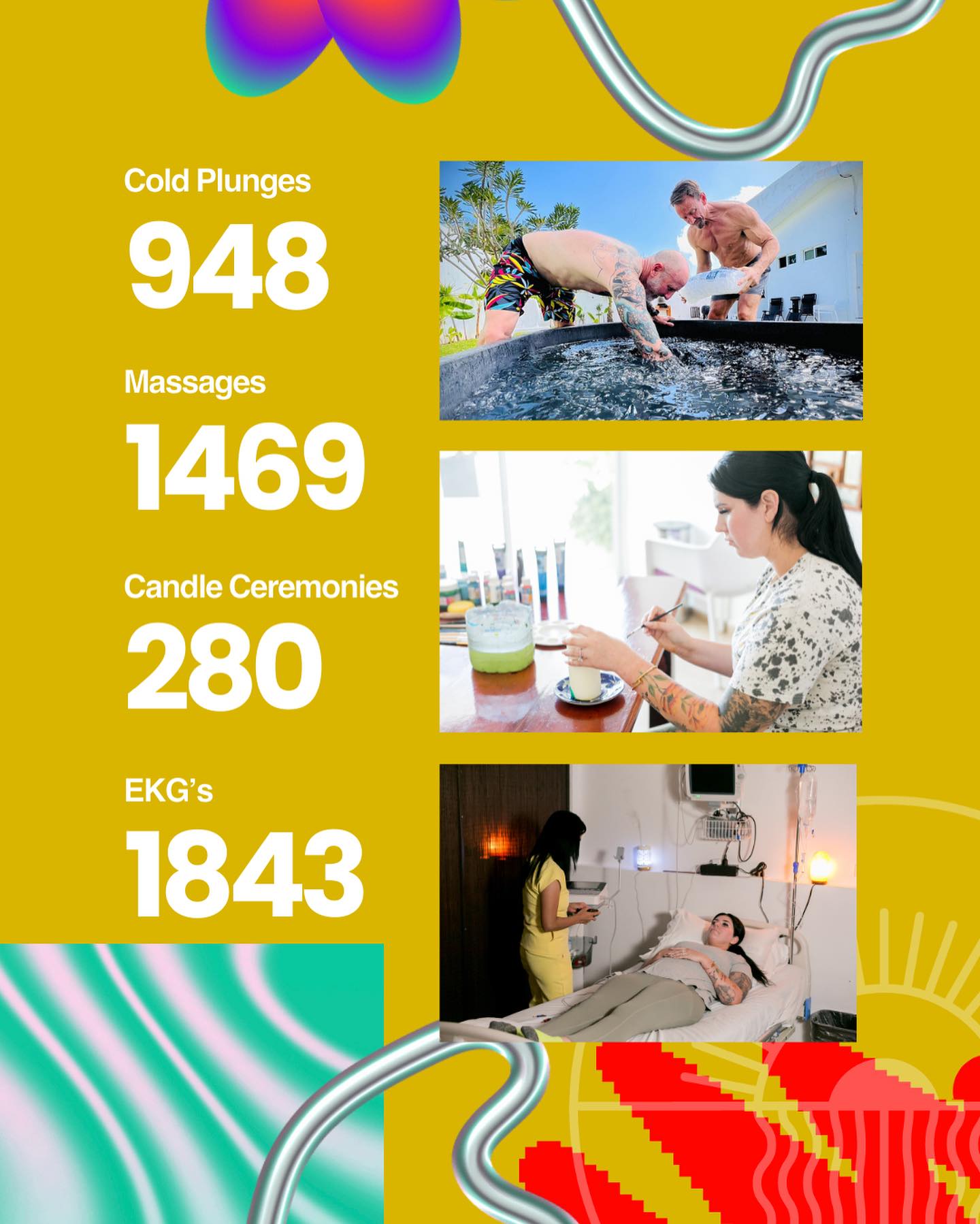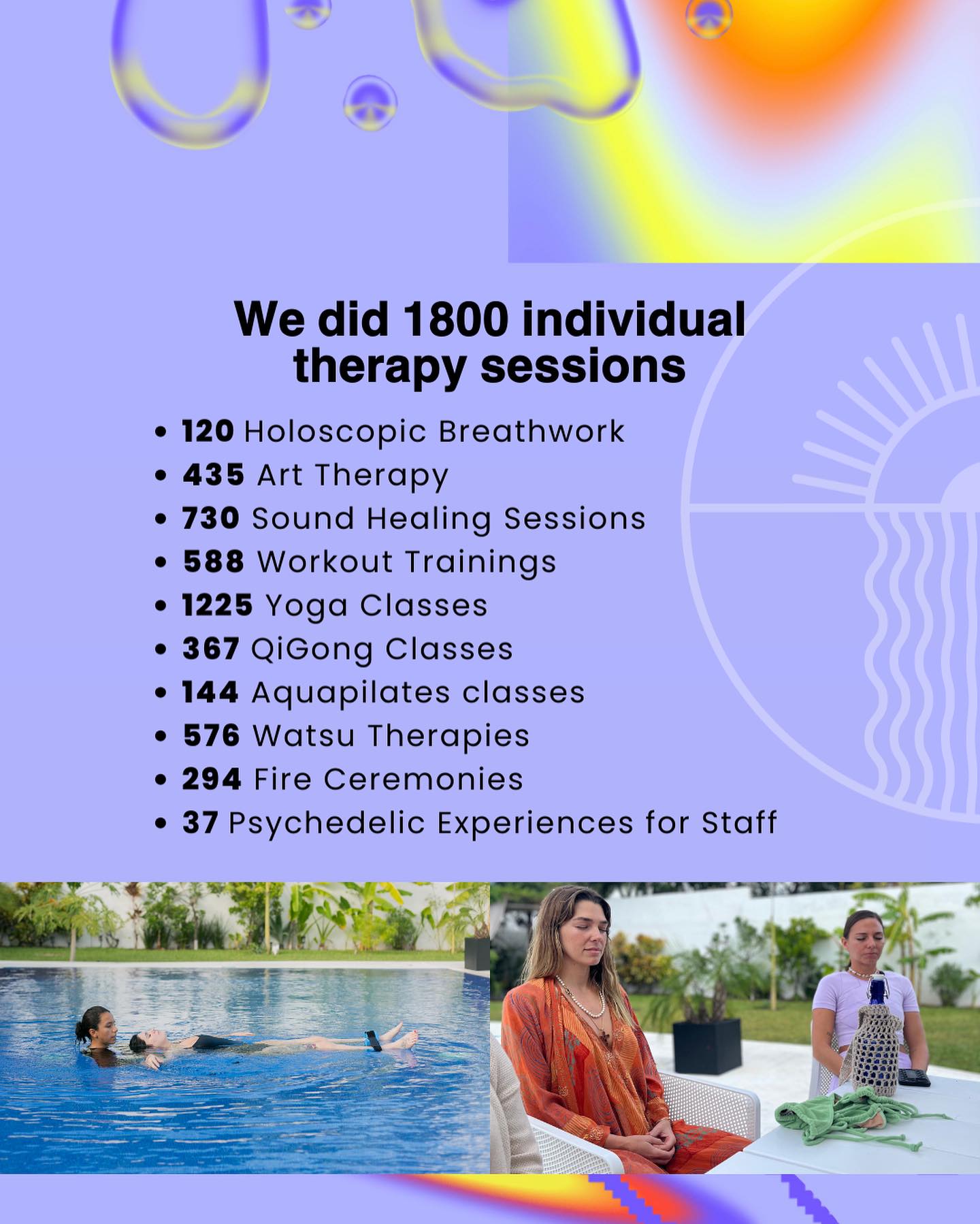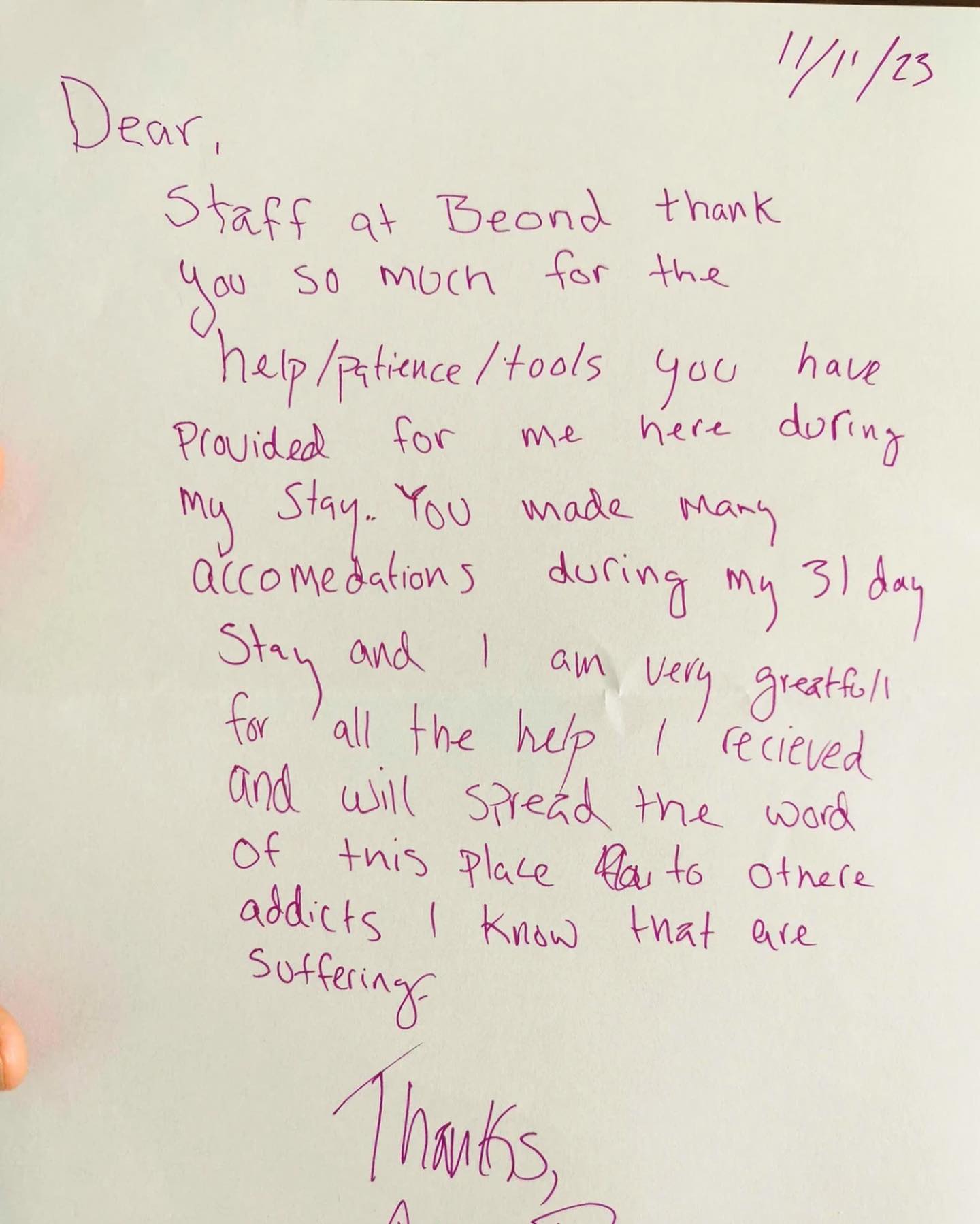This article was originally published in The Washington Post by David Ovalle and Daniel Gilbert, March 14, 2024.
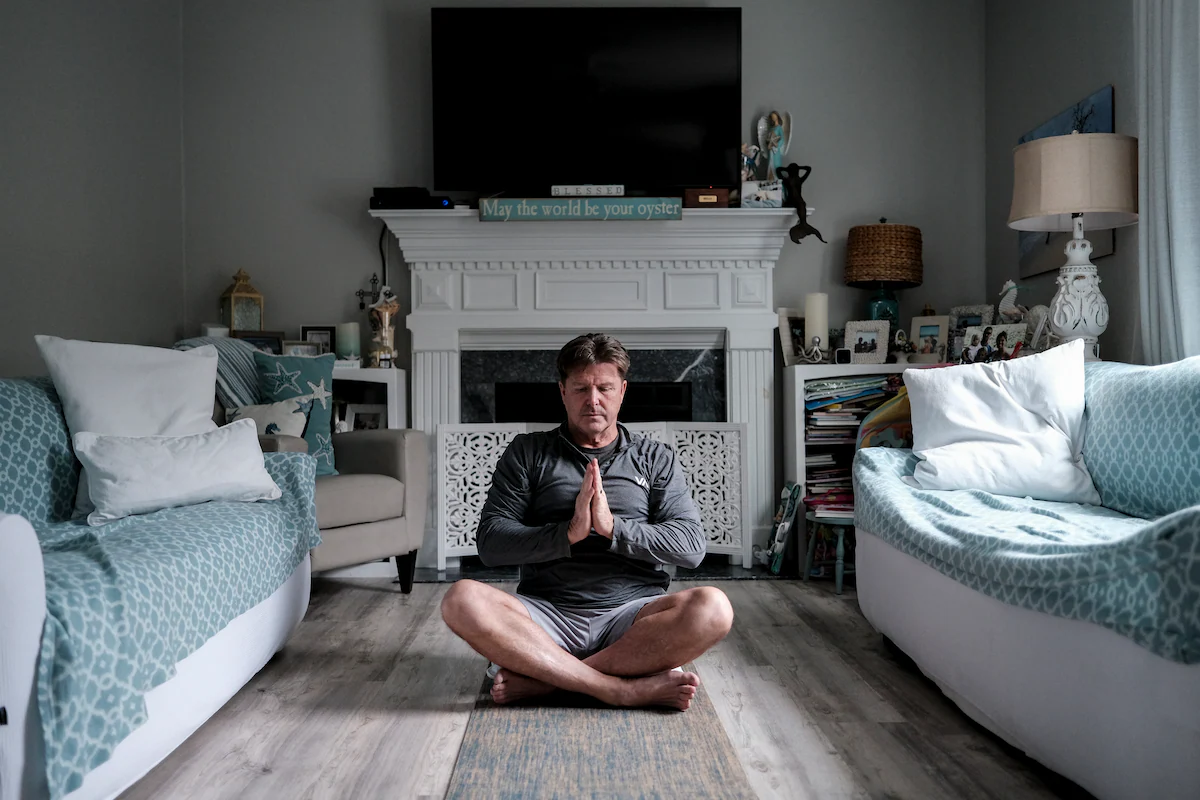 Stephen Jones spent three decades in Navy Special Operations, his brain bearing the imprint of traumatic injury. Yoga and a psychedelic called ibogaine eased his suffering. (Michael A. McCoy for The Washington Post)
Stephen Jones spent three decades in Navy Special Operations, his brain bearing the imprint of traumatic injury. Yoga and a psychedelic called ibogaine eased his suffering. (Michael A. McCoy for The Washington Post)
After three decades and five combat deployments in Navy Special Operations, Stephen Jones’s life spiraled into blackouts, bouts of angry confusion and alcohol-fueled benders. Doctors diagnosed him with traumatic brain injuries inflicted by years of sea dives, parachute jumps, firefights and bomb blasts.
The extract of an ancient African shrub known as ibogaine, he says, helped heal him.
His treatment unfolded at a clinic in Mexico, where he sank into a dreamlike state, reliving forgotten memories: a lake-view as a child; a snake popping out of a pile of leaves; a young boy dead in Iraq, his head pierced by shrapnel from an enemy grenade. Ibogaine, he said, kicked his brain “into a higher gear.”
Jones, 59, was part of a Stanford University study published in January showing that ibogaine dramatically improved symptoms of anxiety, depression and post-traumatic stress disorder in 30 Special Operations veterans diagnosed with traumatic brain injuries.
For advocates, that study offers the latest evidence that patients should have access to the drug in the United States, where it remains illegal despite decades of encouraging findings, principally for use treating addiction. Even as momentum could be shifting in ibogaine’s favor, concerns persist about the threat the drug poses to the heart, reflecting a risk-reward calculation that frames studies of other psychedelic agents.
The increased interest in ibogaine arrives amid urgent efforts to ease the nation’s deadly addiction crisis and comes as companies race to develop psychedelics to treat mental health ailments. In Ohio, a prominent ibogaine advocate in February partnered with a nonprofit that supports people with addiction and called for using state opioid-settlement money to study the drug. It mirrors a much-publicized plan in Kentucky that sought to allocate up to $42 million in settlement money for research, an effort that fizzled amid shifting politics.
“Ohio is one of the nation’s leaders when it comes to opioid deaths. It’s natural fertile soil for research and development of ibogaine,” said W. Bryan Hubbard, who directed the Kentucky commission that considered that state’s ibogaine plan and is working with an Ohio state treasury program to explore ibogaine and other treatments for veterans.
In Mexico, Jones swallowed capsules over several hours, shook a tambourine to the beat of tribal music, laid on a yoga mat and slipped a mask over his eyes. He emerged from his long psychedelic trip feeling motivated and drinking less. Family relationships improved. He returned to running and surfing.
“For a disabled veteran, I can do some amazing [stuff],” Jones said, who teared up remembering his experience. “I can’t believe I’m back in the water shredding waves.”
An ancient history
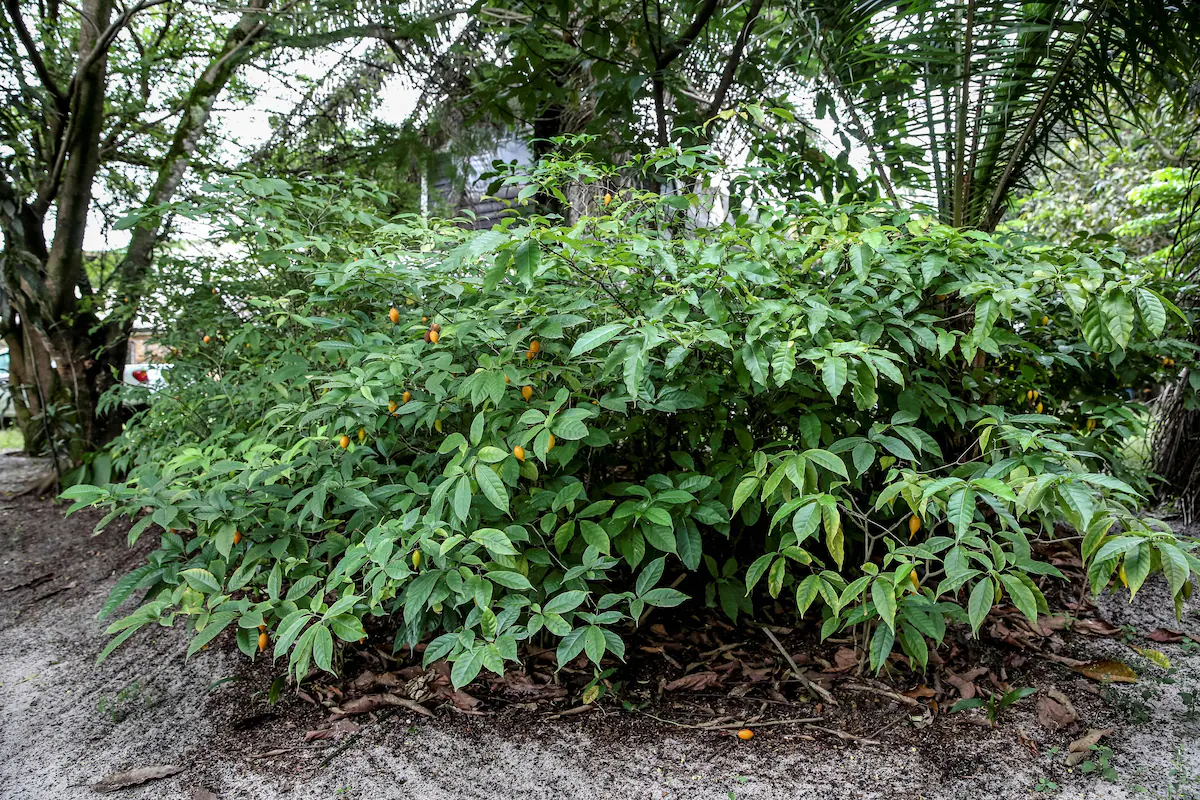 An iboga shrub in Libreville, Gabon. Ibogaine is an extract from the plant. (Steeve Jordan/AFP/Getty Images)
An iboga shrub in Libreville, Gabon. Ibogaine is an extract from the plant. (Steeve Jordan/AFP/Getty Images)
Ibogaine is less well known than other psychedelics, even as it is touted by singer Melissa Etheridge, ex-NBA star Lamar Odom and Jordan Belfort, the former “Wolf of Wall Street” stockbroker. It derives from a four-foot-tall shrub, Tabernanthe iboga, that grows in the Central African rainforest and was long used in traditional medicine as a mild stimulant and in religious ceremonies.
The first hint of its potential to break addiction emerged in Mexico in 1913 when researchers described the case of a woman successfully treated for severe alcoholism with ibogaine tablets. But it was a New Yorker named Howard Lotsof — he claimed one dose of ibogaine helped him kick a heroin habit in 1962 — who became the extract’s chief evangelist as it spread as an underground treatment.
The United States outlawed ibogaine in 1967, alongside other psychedelics. Regulators later deemed it a Schedule I controlled substance with no accepted medical use and a high potential for abuse — in the same class as LSD and heroin. The designation has long troubled advocates who say ibogaine isn’t used recreationally because the psychedelic trips can be grueling.
Lotsof secured patents in the 1980s, pushing for research and treating people struggling with addiction in the Netherlands. In the early 1990s, the science appeared promising. The National Institute on Drug Abuse research showed rodents given ibogaine consumed fewer drugs, such as heroin, morphine and cocaine.
Opioids and other addictive drugs rewire the brain by flooding it with dopamine and other chemicals. Ibogaine, which breaks down into the compound noribogaine, promotes growth of neural networks in damaged brains, said Deborah Mash, founder of DemeRx, a company developing addiction treatments derived from ibogaine compounds. “It heals the brain,” Mash said.
The result: Users who take ibogaine do not feel cravings or the sickening symptoms of withdrawals, Mash said. Their mood also improves, she said.
In 1993, the Food and Drug Administration gave approval to Mash, a longtime University of Miami brain researcher, to run a clinical trial to gauge ibogaine’s safety in cocaine users. The trial was not completed because of a lack of funding. Mash continued her research by establishing an ibogaine clinic on the Caribbean island of St. Kitts, where she said she treated nearly 300 patients safely.
No U.S. clinical trials have been completed on ibogaine.
Safety concerns spurred NIDA to shelve its ibogaine research in 1995. Preliminary research showed it killed certain brain cells in rats and disrupted heart rhythms and showed the potential for fatal arrhythmia, recalled Frank J. Vocci, who presided over NIDA’s ibogaine research at the time.
Even in therapeutic doses, ibogaine blocks a critical protein that can cause a delay in cardiac electrical signals, according to Mark Haigney, director of cardiology at the Uniformed Services University. It prolongs the QT interval, a standard measurement of how long it takes the heart to recharge as it beats, he testified at an October hearing of the Kentucky commission that considered allocating millions to research ibogaine.
“To safely use ibogaine, you’d have to do a great deal of heart screening,” Haigney testified, saying he does not believe the FDA will approve the compound.
NIDA Director Nora Volkow said ibogaine holds promise but researchers need to isolate a version that does not disrupt the heart, or establish methods to determine who may be genetically at risk from the drug.
“The issue of [cardiac] toxicity is real,” Volkow said in an interview.
Ibogaine advocates say the heart dangers can be managed or overcome and argue potential health benefits outweigh the risks.
Ibogaine across the border

Jones was treated with ibogaine in Mexico, where he swallowed capsules over several hours and shook a tambourine to the beat of tribal music. (Michael A. McCoy for The Washington Post)
With the United States in the throes of unprecedented addiction and mental health crises, some users struggling with addiction travel to Mexico, where ibogaine clinics are legal. Some are staffed with doctors and nurses, have strict safety protocols and are government regulated. Others are informal operations run from private homes. Treatment isn’t cheap.
At Beond, an ibogaine clinic in Cancún that features yoga, meditation and fitness programs, clients pay $9,500 to $15,000 for stays generally lasting at least 10 days. Co-founder Tom Feegel said the clinic has treated more than 650 clients and that about three-quarters of clients given ibogaine for substance use do not relapse.
Companies hope to develop ibogaine treatments without the hallucinogenic trip. The promise of psychedelic medicine has drawn deep-pocketed investors in recent years, with billionaire venture capitalists Peter Thiel and Christian Angermayer backing the biopharmaceutical company atai Life Sciences, and OpenAI CEO Sam Altman chairing a firm that aims to shepherd psychedelics through clinical trials. Atai is leading a clinical trial in the United Kingdom on an ibogaine-derived treatment for opioid withdrawal and relapse prevention.
Investors have poured more than $100 million into Delix Therapeutics in Boston to develop treatments for mental health conditions, with an ibogaine-derived compound aimed at treating the use of opioids and stimulants. In December, NIDA awarded the company a $320,000 grant to advance the drug, which the company says appeared safe in an initial clinical trial. Delix’s chief scientific officer, Kurt Rasmussen, envisions patients taking the medication as pills that don’t require medical monitoring. “They can take it at home,” Rasmussen said.
The Stanford study was funded by billionaire venture capitalist Steve Jurvetson and his wife, Genevieve, and the Sergey Brin Family Foundation, established by the co-founder of Google, underscoring the growing interest in psychedelics by tech industry leaders.
There’s interest, too, from the same group on the cusp of winning federal approval for the therapeutic use of MDMA, commonly known as ecstasy.
Rick Doblin, founder of the Multidisciplinary Association for Psychedelic Studies — known as MAPS — described his own experience with the iboga plant decades ago as “one of the most important psychedelic experiences of my life.” He wants to create a coalition that could combine philanthropy with public funding to develop ibogaine without resorting to patents that would make the medicine more expensive.
An ambitious plan stalls
 Fruit from the iboga shrub in Gabon. (Steve Jordan/AFP/Getty Images)
Fruit from the iboga shrub in Gabon. (Steve Jordan/AFP/Getty Images)
Last spring, the idea of a public-private partnership to study ibogaine was floated by Hubbard, the former Kentucky official. He chaired the Kentucky Opioid Abatement Advisory Commission, responsible for allocating half of nearly $842 million the state is receiving from drug companies, distributors and pharmacies to settle lawsuits alleging they flooded the state with prescription pain pills.
Hubbard secured support from the state’s attorney general at the time. The plan called for the commission to allocate up to $42 million to help a private “research entity” pay for ibogaine clinical trials. Before settlement money would be spent, the entity would need FDA approval for clinical trials and match any contributions from the state, Hubbard said.
“I said we have got to pursue our Manhattan Project opportunity to use a small portion of this money to fund a therapeutic breakthrough,” Hubbard said.
Advocates hailed the plan as a seminal moment for research into a drug they believe could prove better than buprenorphine and methadone, drugs taken to curb cravings of opioids and stave off withdrawals.
Skeptics criticized the plan as a wasteful, risky gamble that would help private companies, not Kentuckians struggling with addiction. Dimitri Mugianis, an activist prosecuted for providing underground ibogaine treatment, believes in the drug’s promise — but did not support the research plan, saying the millions of dollars it cost would benefit too few people. “In a way this is research for a boutique treatment,” Mugianis said.
Kentucky’s new attorney general pushed Hubbard out of the commission and suggested his office had other priorities.
Proponents say using ibogaine treatments for veterans may make approval an easier sell. The federal defense spending bill passed in December authorized expanded research into psychedelics to treat PTSD and traumatic brain injuries for active-duty service members.
The Stanford study, published in Nature Medicine, found that in the 30 Special Operations veterans, ibogaine combined with magnesium — added to prevent risks to the heart — “safely and effectively” reduced symptoms of PTSD, anxiety and depression.
Participants selected through a nonprofit, Veterans Exploring Treatment Solutions, underwent testing at Stanford before traveling to a Tijuana-area clinic run. Patients call the psychedelic trip a “slide show” or a “life review” of memories, including early childhood traumas, said Nolan Williams, an associate professor of psychiatry who ran the Stanford study and is director of Stanford’s Brain Stimulation lab.
Participants experienced on average a nearly 90 percent reduction in symptoms of PTSD and depression one month later. Researchers reported improvements in concentration, information processing and memory. The study had limits: It included a small number of subjects, and researchers could not determine the effect of participants’ beliefs that ibogaine would help or the contribution of treatments such as coaching and group activities.
Alan K. Davis, director of the Center for Psychedelic Drug Research and Education at Ohio State University, said the study “adds very little” to what is known about how ibogaine works for vets with PTSD. “We published data from much larger samples and longer follow up,” Davis said, referring to a study showing results similar to the Stanford findings.
 “For a disabled veteran, I can do some amazing [stuff],” Jones says following treatment with ibogaine. (Michael A. McCoy for The Washington Post)
“For a disabled veteran, I can do some amazing [stuff],” Jones says following treatment with ibogaine. (Michael A. McCoy for The Washington Post)
The long-term effectiveness of ibogaine treatment is not well established, he said.
“It may only help in the short term for most people. For many, ongoing clinical aftercare therapy and other forms of treatment may be needed,” Davis wrote in an email.
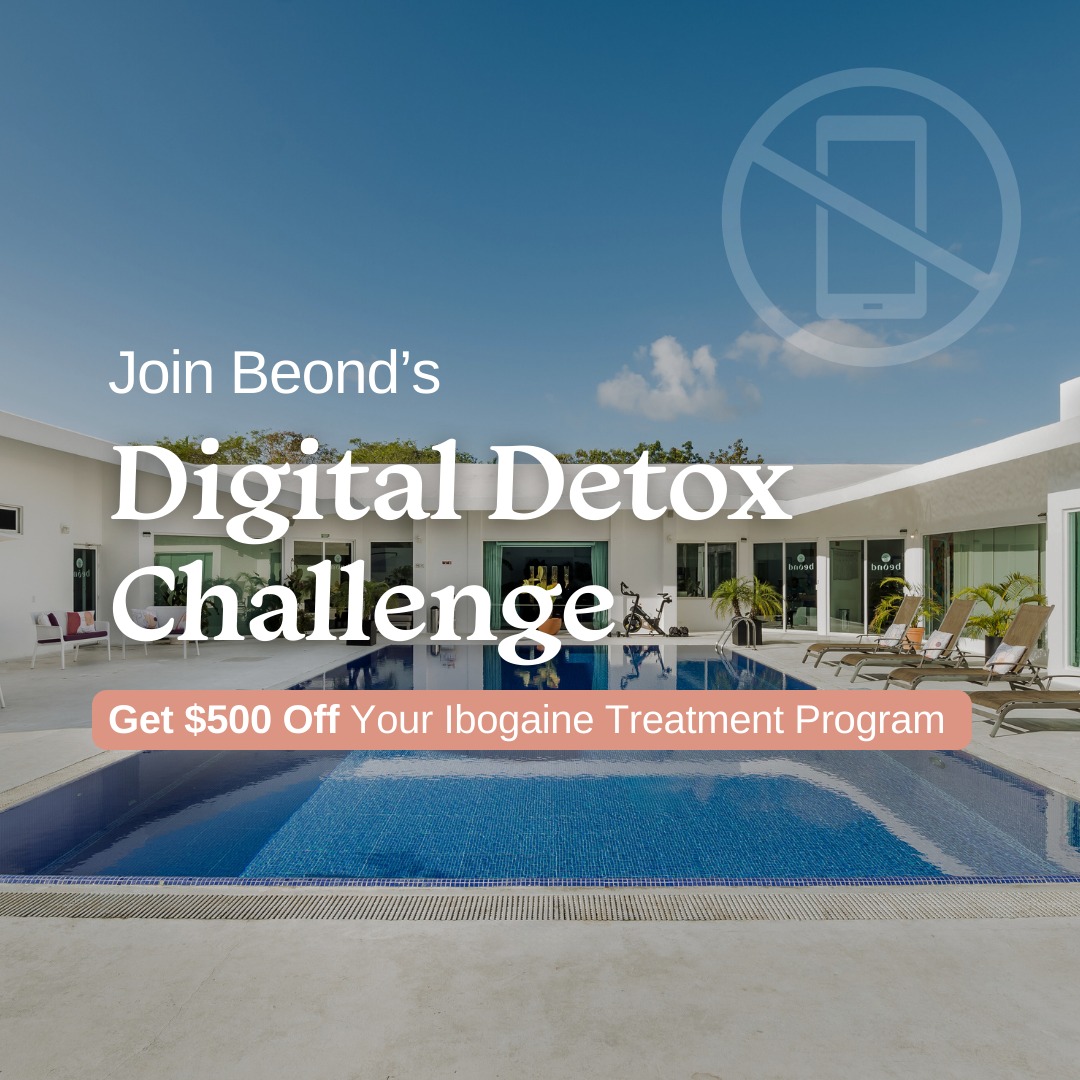
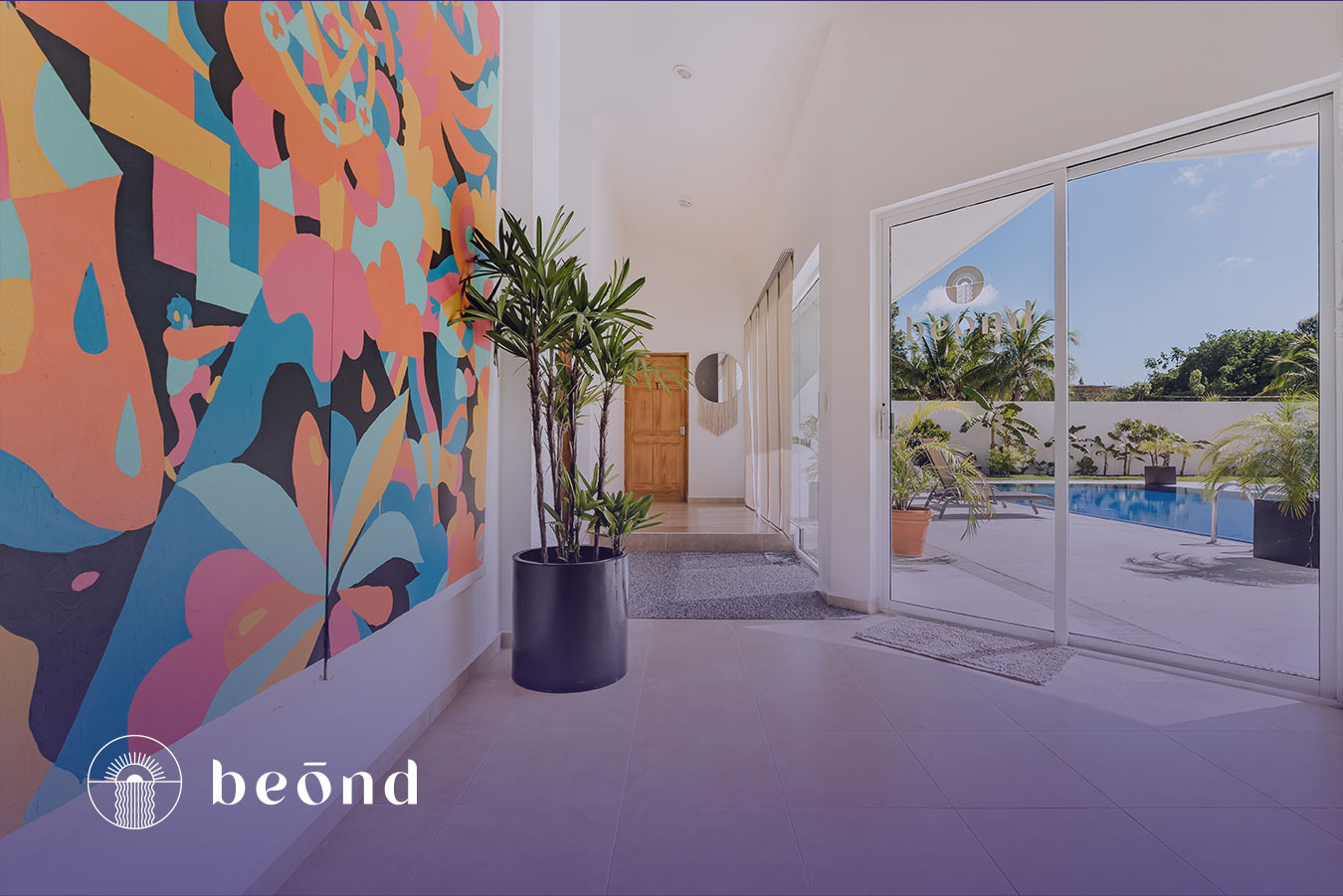
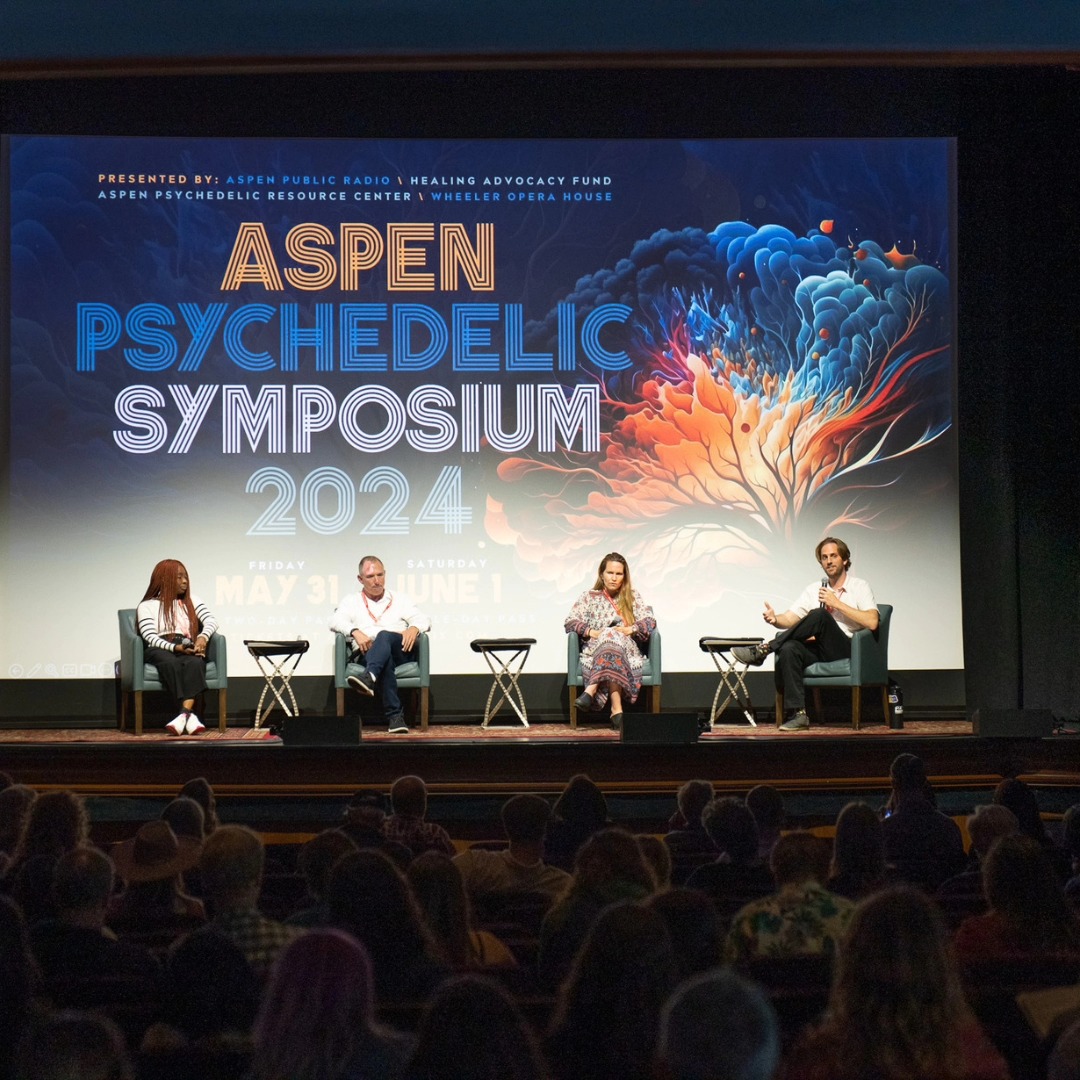
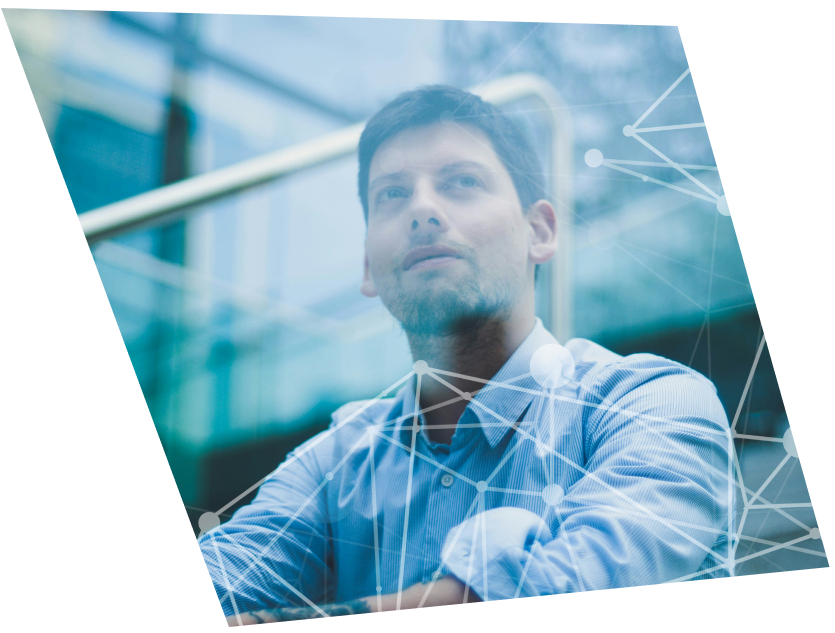
 Stephen Jones spent three decades in Navy Special Operations, his brain bearing the imprint of traumatic injury. Yoga and a psychedelic called ibogaine eased his suffering. (Michael A. McCoy for The Washington Post)
Stephen Jones spent three decades in Navy Special Operations, his brain bearing the imprint of traumatic injury. Yoga and a psychedelic called ibogaine eased his suffering. (Michael A. McCoy for The Washington Post) An iboga shrub in Libreville, Gabon. Ibogaine is an extract from the plant. (Steeve Jordan/AFP/Getty Images)
An iboga shrub in Libreville, Gabon. Ibogaine is an extract from the plant. (Steeve Jordan/AFP/Getty Images)
 Fruit from the iboga shrub in Gabon. (Steve Jordan/AFP/Getty Images)
Fruit from the iboga shrub in Gabon. (Steve Jordan/AFP/Getty Images) “For a disabled veteran, I can do some amazing [stuff],” Jones says following treatment with ibogaine. (Michael A. McCoy for The Washington Post)
“For a disabled veteran, I can do some amazing [stuff],” Jones says following treatment with ibogaine. (Michael A. McCoy for The Washington Post)